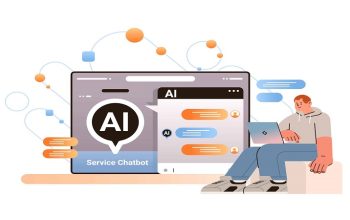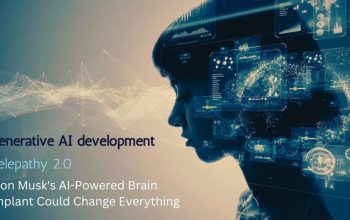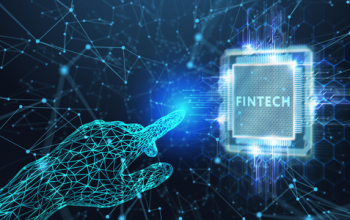Education system is the backbone of a nation. Our children can only achieve their full potential as productive members of society and moral, responsible citizens if they receive a quality education. However, how can we create a system of education that best prepares the next generation of adults? Building schools that can keep up with the rapid pace of change in the twenty-first century is no easy undertaking.
Changes in the Educational System Caused by Artificial Intelligence
A person’s ability to pass on knowledge is known as education, and it’s a long-standing custom that sets us distinct from all other living things on the planet. Rather than re-discovering or learning the laws that govern the world we live in, future generations can start up right where their predecessors left off and increase the skills and information we already possess through education.
Consider some of the most significant shifts in our culture over the last three decades and how they have impacted the way we teach today. In 2045, the world will be vastly different from the one we know now. It is critical to assist pupils in creating a mental framework that forces them to consider their mortality. A unique educational program for children ages 9 to 15 called the Montessori Model United Nations helps pupils get a fresh point of view and a wide range of in-the-trenches skills.
There is a shift in the economic landscape. All around the world, the service and information economy is booming. The non-oil economy of Abu Dhabi is expected to develop at an annual rate of over 8% as the country makes the long-term transition to a much more sustainable and high-value knowledge economy.
As a result of globalization, everyone must adopt new ways of thinking. The world has shrunk in size over the last half-century. To be internationally competitive, our children and grandchildren must understand various cultures and tolerate cultural ambiguity.
When it comes to accessing information, things have altered significantly. Every few years, the amount of information available increases by two or three. As a result, we’ll need to adapt our management strategy. We can’t even envision the skills kids of the future will need to be able to detect, synthesize, and collect data in the future.
Our pupils will require a wide range of abilities to deal with such rapid change. As a result, education will no longer be limited to imparting “knowledge” but will instead call for students to demonstrate their ability to think creatively, communicate effectively, and be adaptable. On the other hand, education runs the risk of getting lost in the process of preparing students for the jobs of the future. As instructors, we must pay attention to more than simply the student’s professional growth. There must be learning spaces where young minds may get a well-rounded, complete education that includes culture and value development and language and a link to our cultural history.
A confluence of technologies, known as ed-tech, is reshaping the educational landscape in unprecedented ways, reshaping classrooms, universities, and the entire educational system.
Artificial intelligence (AI) is at the cutting edge of these developments, yet it is a misunderstood field of study sweeping the globe. As a result, it is either aiding or replacing humans in a wide range of businesses by executing complex jobs. Artificial intelligence is positively transforming the world, which is just one example of that.
In-Depth Courses And Resources
Until recently, teachers and schools were compelled to apply a fundamental approach in which all pupils were comparably treated in the classroom. Machine-learning-based artificial intelligence now identifies patterns in their performance data to help teachers better understand their students’ strengths and weaknesses. Teachers can use this data to draw actionable insights from their students’ performances and make efficient and informed decisions.
Mathematical algorithms can benefit students by giving tailored material, lectures, and exercises that will help them bridge the gaps in their knowledge. The ML algorithms may find and prescribe multiple learning paths by analyzing the acquired data from a massive number of students, ensuring that students have minor problems on their journey to developing their professions.
For example, algorithms can also assist students in choosing a major based on their abilities and talents, which can help them find a career path that suits them best. Natural Learning Generation (NLG) and Deep Learning (DL) can be used to synthesize and offer tailored content, written strictly as a human would have written it, in other uses of artificial intelligence in content delivery. Currently, Content Technologies is looking into this idea.
In-Depth Teaching
Thanks to broadband internet and the current explosion of cloud computing services, it’s been around for some time now. Tutoring tasks can now be accomplished from a distance via online portals or platforms. It’s a way to bring individuals together, even if they live on opposite sides of the world, to share knowledge and develop their natural talents.
These platforms are now moving forward to the next level thanks to artificial intelligence, allowing users to connect with the proper people and enhance the tutoring experience. A new social media network has recently been launched that allows millions of students to interact and collaborate on projects and homework. Over a thousand moderators determine the quality of the questions and answers shared amongst the platform users. By recognizing and filtering spam and low-quality questions and answers using artificial intelligence algorithms, the platforms allow moderators to focus on providing high-quality service.
These platforms also employ algorithms to create friend suggestions that can assist the students in each other’s strengths and finding persons who can answer their questions. An online, individualized learning experience will benefit significantly from this development.
To replicate the advantages of one-on-one tutoring, many other platforms develop tutors driven by artificial intelligence.
Making Educators Fill Education Gaps
Teachers, while dealing with a significant number of students, often miss out on the gaps in their instructional materials or even lectures, which tend to confuse the students and, in turn, impair their learning experience. Teachers can be alerted promptly by artificial intelligence if they discover these weaknesses.
An example would be an open online course provider who can warn teachers when many students submit the wrong answers to the same question while also supporting the students by offering a tailored message that directs them in the correct direction. The artificial intelligence assistants can help students learn ideas without waiting for their teachers by developing individualized and clever interactions with them.
Math tutoring is also available online through another platform that connects teachers and students worldwide. After being trained in more than a few thousand classes, an artificial intelligence engine on this platform will be able to provide teachers with real-time feedback on what and how their pupils may have misunderstood and how they may better teach any given idea.
Classrooms and learning are undergoing a radical transformation thanks to artificial intelligence. Teachers can use technology to tailor their lessons to individual pupils and subjects, but exceptional teachers will always be needed. Teachers must be able to maintain tabs on the progress of each student.
Education System under AI in the Future
The relationship between a student and a teacher is both complex and human. A future in which all teachers are replaced by robots and artificial intelligence is not ideal, but it is not impossible.
There is no reason to use artificial intelligence further to enhance this valued relationship. These initiatives will undoubtedly enable future generations to gain knowledge more quickly and advance the human species faster.

Thomas Smith is an assignment writing help expert, who has worked for various publishing companies throughout his career having 12 years of experience as a content writer. Thomas is a well published individual who has written many blogs on how to write an essay and improve their academic writing skills. You can check out his Twitter for more information.




